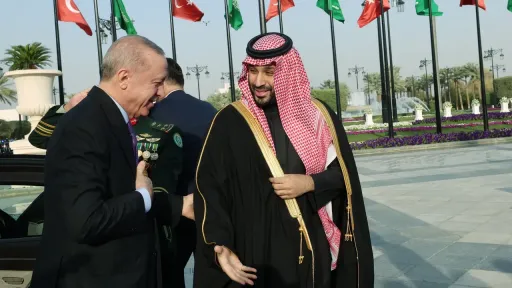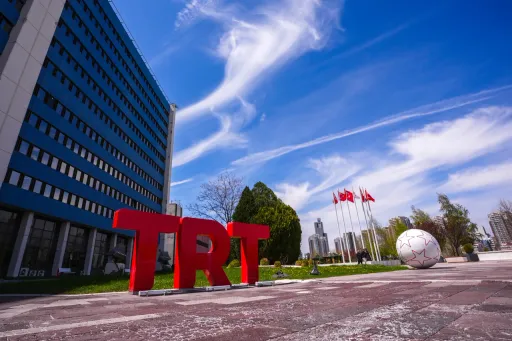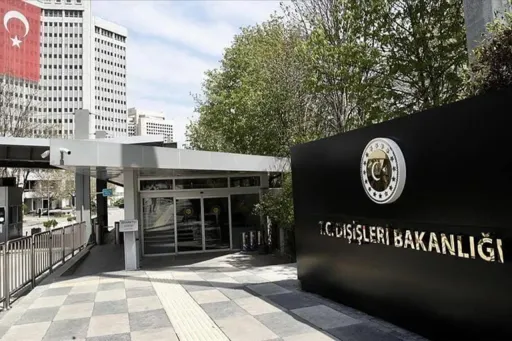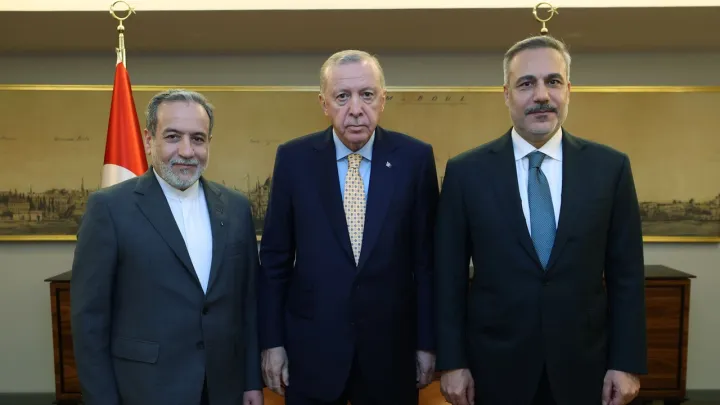Sport
Dollar
0,0000
%Euro
0,0000
%Gram Gold
0,0000
%Quarter Gold
0,0000
%Silver
0,0000
%With the launch of a new pipeline from Kilis to Aleppo, Türkiye has begun supplying Azerbaijani natural gas to Syria—aiming to power five million homes, revive dormant power plants, and lead regional recovery efforts alongside Qatar and Azerbaijan.
Türkiye’s natural gas supply deal with Syria signals Ankara’s evolving role as both a humanitarian actor and an energy power broker in the region, marking a key moment in efforts to restore the war-scarred country’s energy infrastructure, analysts have said.
Türkiye’s Energy and Natural Resources Minister Alparslan Bayraktar announced that the first shipments of Azerbaijani gas had reached Syria via the newly restored Kilis–Aleppo pipeline, which was completed on May 21 after extensive repair work.
Speaking at the inauguration ceremony in the Turkish border province of Kilis, Bayraktar called the moment “historic,” noting that it reflects both Türkiye’s technical capabilities and its humanitarian commitment to stabilising the region.
Under the agreement, up to 2 billion cubic meters (bcm) of natural gas will be exported to Syria annually — which is enough to generate electricity for approximately five million homes.
Initial flows of up to 6 million cubic meters (mcm) per day will power Aleppo in northern Syria before reaching the central city of Homs, enabling the reactivation of long-dormant power plants.
These deliveries are expected to triple Syria’s average daily electricity supply, which had been reduced to just 3–4 hours a day in many regions since the outbreak of civil war in 2011.
“The gas we are sending is not just energy — it is light, it is life, it is a message of solidarity,” Bayraktar said. “Türkiye is committed to helping Syria recover, step by step.”
Analysts say that by restoring critical infrastructure and forming cross-border partnerships, Ankara is increasingly leveraging energy diplomacy to assert influence and foster stability.
“We’re seeing the rise of Türkiye as a regional energy integrator,” says Oguzhan Akyener, president of Türkiye’s Energy Strategies and Politics Research Center (TESPAM).
“This is not just about kilowatts and pipelines — it’s about rebuilding lives, shaping peace, and creating interdependence where conflict once ruled,” Akyener tells TRT World.
From ruins to reconstruction
Syria’s once-functional energy infrastructure has been largely decimated by more than a decade of conflict.
Power generation facilities, natural gas systems, and high-voltage transmission lines were either damaged beyond repair or left inoperable. Electricity shortages have paralysed daily life in many parts of the country — including major cities like Damascus.
The collapse of the Baath regime in December 2024 opened a transitional period in Syria, where rebuilding the energy sector has become a top priority. Türkiye, with its geographic proximity and engineering expertise, has stepped forward as a critical partner.
"Türkiye has consistently shouldered responsibility in every stage of Syria’s reconstruction process,” Akyener says. “Its vast experience and technical capabilities are being shared across the border to help a neighbour rise from devastation.”
Before the formal gas supply agreement, Türkiye had already been exporting limited amounts of electricity to northern Syria through eight separate points — a number officials say is now being expanded by at least 25 percent, with long-term plans to more than double capacity.
“At this stage, we’re not just talking about emergency support anymore,” Akyener explains. “This is a comprehensive rebuilding strategy — from electricity generation to transmission infrastructure, and even the future creation of a functioning electricity market.”
A regional partnership
The project is the result of a trilateral energy partnership between Türkiye, Azerbaijan, and Qatar, with Azerbaijani gas serving as the primary source. The deliveries are being carried out through a swap agreement between Türkiye and Azerbaijan’s state oil and gas company.
“Azerbaijan signs the gas deal with Syria, but the gas itself is delivered via Türkiye using a swap mechanism,” explains Akyener.
“Azerbaijan sends the gas to Türkiye, and Türkiye, using its own domestic infrastructure, forwards the same volume to Syria. This kind of swap requires a highly advanced pipeline and compression system — something Türkiye has developed over years of investment.”
The model reflects the same formula used earlier this year to supply gas to Nakhchivan, Azerbaijan’s exclave, via the Igdir–Nakhchivan pipeline — and resembles another ongoing swap operation between Türkiye, Iran, and Turkmenistan.
“This project reflects our unity under the motto ‘two states, one nation,’” minister Bayraktar said, alongside Azerbaijan’s Economy Minister Mikayil Jabbarov and Qatar Development Fund President Fahad Hamad Al-Sulaiti, both of whom attended the ceremony.
Qatar’s contribution, both strategic and financial, has been key in accelerating the project. “Together with our Qatari and Azerbaijani partners, Türkiye is moving quickly to transform what was once a crisis zone into a space of cooperation,” Bayraktar added.
Meanwhile, exploratory efforts are underway to eventually supplement Syria’s supply with Qatari gas via Jordan, though officials say Türkiye’s infrastructure advantage has made its model more immediately effective.
Powering Syria’s recovery
According to project officials, the first phase of the supply will serve Aleppo, with infrastructure now being expanded to include Homs, and eventually wider regions of Syria. The amount of gas being delivered is sufficient to activate nearly 1,200 megawatts of generation capacity — significantly boosting power availability.
“If there is no reliable power supply, then reconstruction cannot move forward,” says Akyener. “This initiative alone will increase electricity access by several hours a day, providing a lifeline to hospitals, schools, and homes.”
Officials also stressed that the plan extends beyond short-term supply. Türkiye envisions a gradual integration of Syria’s entire electricity grid, including the reactivation of idle power plants and — eventually — the reclamation of infrastructure currently under the control of the YP terrorist group.
“The ultimate goal is not just to supply gas, but to reestablish a sustainable energy market in Syria,” Akyener emphasises. “With further steps — including peace and security in the region — even Syria’s domestic oil and gas potential could be tapped in the future. But first, the region must be cleared of terrorist threats.”
As natural gas begins to flow into Aleppo, and lights flicker back on in Syrian homes and hospitals, the pipeline symbolises more than just infrastructure — it represents a regional recalibration, and a step toward the long and difficult road to recovery.
Comments
No comments Yet




















Comment